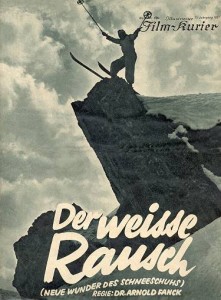 There is something about the calculation of Wes Anderson that interests me, hopefully not because of my own OCD-driven obsession with symmetry, but probably because there are genuine moments and themes that emerge, successfully, from all the apparent zaniness and hyperbole. Often he manages to conjure meaning unexpectedly and, in retrospect, under wholly irrational circumstances. The actions and events in Grand Budapest Hotel are often impossible, and settings are sometimes unabashedly as fake as View-Master slides, yet there is a genuine satisfaction steeped in a suspension of disbelief that all-out Jerry Lewis slapstick would never allow. Add to that a quixotic main character, M. Gustave (Ralph Fiennes), a hotel concierge who is a silly anachronism himself (always an interesting character to me), and whose dialogue is well-crafted and at its best when it breaks from the rigid posh spewing he so earnestly tries to maintain. Some of the funniest moments are when he is forced into tantrums or self-mockery, and the most touching moments are when he unknowingly forgets all about his superiority complex.
There is something about the calculation of Wes Anderson that interests me, hopefully not because of my own OCD-driven obsession with symmetry, but probably because there are genuine moments and themes that emerge, successfully, from all the apparent zaniness and hyperbole. Often he manages to conjure meaning unexpectedly and, in retrospect, under wholly irrational circumstances. The actions and events in Grand Budapest Hotel are often impossible, and settings are sometimes unabashedly as fake as View-Master slides, yet there is a genuine satisfaction steeped in a suspension of disbelief that all-out Jerry Lewis slapstick would never allow. Add to that a quixotic main character, M. Gustave (Ralph Fiennes), a hotel concierge who is a silly anachronism himself (always an interesting character to me), and whose dialogue is well-crafted and at its best when it breaks from the rigid posh spewing he so earnestly tries to maintain. Some of the funniest moments are when he is forced into tantrums or self-mockery, and the most touching moments are when he unknowingly forgets all about his superiority complex.Admittedly, the traveler-adventurer boy in me laps up the simple nostalgia of Grand Budapest Hotel, set in an old Europe on the brink of fascist incursion and with its consistent allusions to alpine life in vaguely Eastern Bloc settings (check out these silent scenes from 1931). And I also have a soft spot for characters who childishly struggle to make the point that style and quality are important, however silly and pretentious they may come off in the end.
Some of the now standard Wes Anderson annoyances, (for some reason, when I see purposefully placed taxidermy or emulations of Bob Ross paintings, I want to stab a hipster in the beard with fork) are in danger of causing distraction by way of blatant catering to a certain demographic (the cult followers of Wes Anderson, for example). Is it really necessary to set up every scene as a curated window display? Even Stanley Kubrick must have suspected that such obsessive attention to detail could come off as little more than marginally interesting manifestations of compulsion. And I wish he wouldn´t be obliged to include the same faces in different clothing (Owen Wilson, Bill  Murray, Jason Schwartzman, etc.) whose cameos detract from the movie and seem to serve little purpose in and of themselves; that cuteness wore off three movies ago.
Murray, Jason Schwartzman, etc.) whose cameos detract from the movie and seem to serve little purpose in and of themselves; that cuteness wore off three movies ago.
But Anderson has proven that he can be effective in crafting well-adjusted nostalgia with a story driven by a narrator, a much-used formula that is so often botched by others (ehem…Woody Allen). Perhaps this will be considered an example of when a director didn´t ruin it for the rest of us once he realized he could do whatever he wanted.
The Grand Budapest Hotel Trailer.
************
And some other movie bits that I´ve been stuck on lately:
A great long shot in Leos Carax´s ¨Mauvais Sang¨in which is now a nostalgic epithet of the bygone age of the radio and the joy of its unpredictability, and an expression of the dense weight of being in love and self-absorbed.
A video essay on Nagisa Oshima’s The Man Who Left His Will on Film (1970). An intriguing mix of the hero tragedy, photography and art, and social change and pressures, in the pervading setting of a modern city.
http://www.theseventhart.org/main/videos/issue-11-the-man-who-left-his-will-on-film/#.U3NSgFiSxwY
And some groovy links for movie-goers
